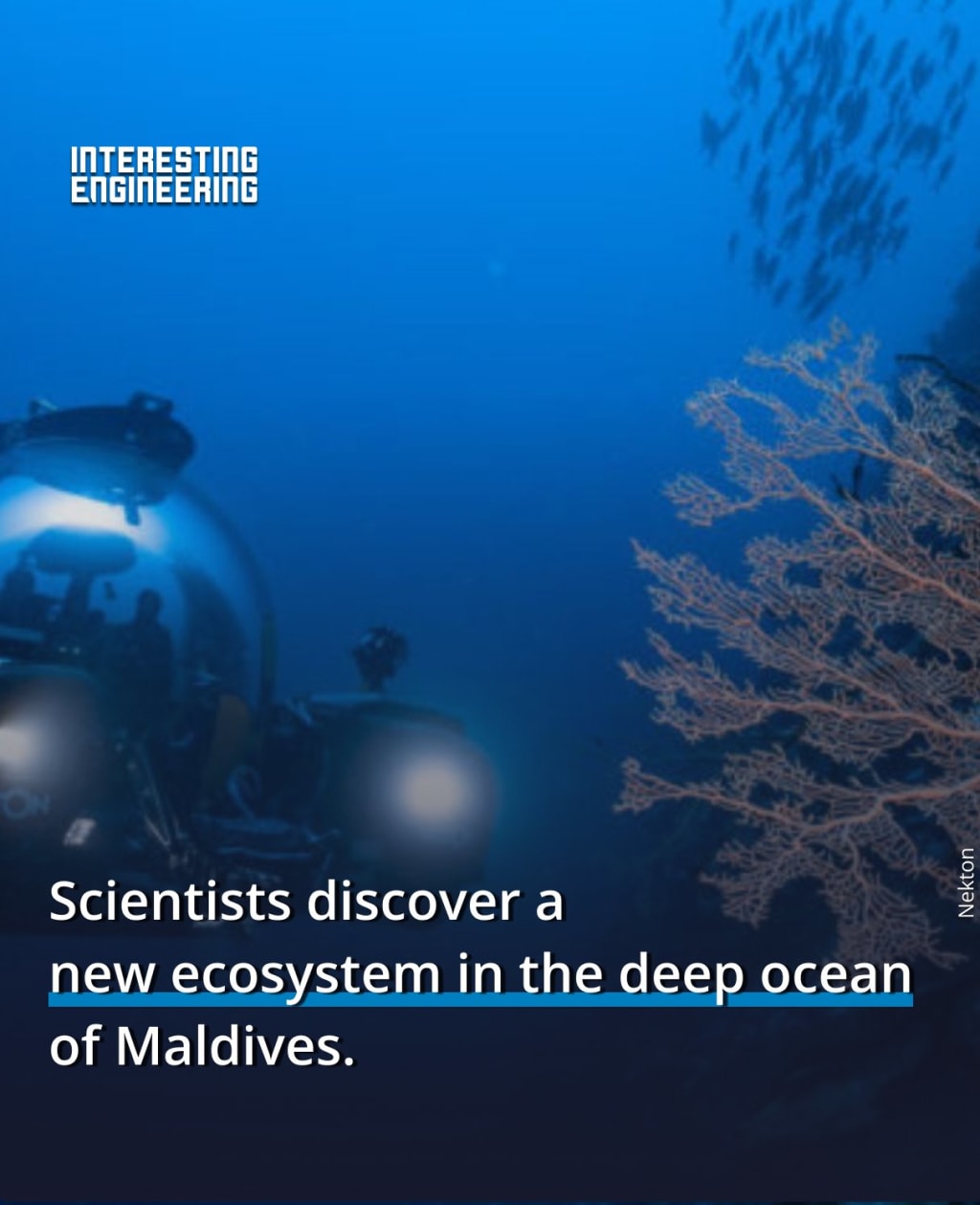
Scientists on a mission in the Maldives have discovered a new ecosystem 500 meters deep in the ocean.
The discovery is expected to result in enhanced safeguards for the marine life and fisheries in this special region, according to a press release published on Tuesday by Nekton.
Nekton is a non-profit research foundation and a charity registered in the U.K. that was founded to accelerate ocean scientific research and ocean conservation.
Both the geography and the marine organisms in the ocean define marine ecosystems. Professor Alex Rogers, who spent more than 30 hours underwater in the mission's submersibles monitoring "The Trapping Zone" during the expedition, said, "This has all the hallmarks of a distinct new ecosystem."
"The Trapping Zone is creating an oasis of life in the Maldives, and it is highly likely to exist in other oceanic islands and also on the slopes of continents," added Professor Rogers.
The ecology, which is now known as "The Trapping Zone," sustains an oasis of life in the ocean's depths.
The Trapping Zone concept was developed in the Maldivian atolls after scientists on the Nekton Mission collected several biological samples, video footage, and extensive sonar mapping.
A ring-shaped coral reef, island, or collection of islets is known as an atoll.
"Image data, combined with the biological samples we have collected from our submersibles and extensive sonar mapping, all point to megafauna predators such as sharks and other large fish feeding on swarms of micro-nekton - small swimming creatures that are trapped against the subsea landscape at that depth", said Professor Lucy Woodall, Nekton's Principal Scientist.
Nekton Mission in the Maldives
Nekton's goal is to investigate the deep ocean. Inspiring storytelling, education, and scientific research are all part of Nekton's mission to advance public and scientific understanding of the deep ocean.
The Nekton Maldives Mission is the Maldives' first systematic discovery and documentation of ocean life.
"I will say it's a huge success. We have gathered a lot of information that we otherwise wouldn't be able to achieve in a short period of time," said Mohamed Shimal of the Maldives Marine Research Institute(MMRI).
"We have done a successful job at documenting the deep sea environments and from [1000 meters] deep to about 500 meters."
Onboard the 34-day Nekton expedition, Maldivian scientists and their foreign partners conducted comprehensive research on and collected samples from these natural structures.
The Nekton Mission in the Maldives is a collaboration between the Maldives' government, the MMRI, and international scientists, and it is supported by Swiss luxury watchmaker Omega, which donated a cutting-edge Omega Seamaster II submersible vehicle for the mission.
The video and biological data collected during the survey are being studied in the Maldives, at Nekton's UK headquarters in Oxford, and at partner laboratories.
The discovery may have significant ramifications for managing sustainable fisheries, burying and storing carbon, managing slopes of continents and other oceanic islands, and mitigating climate change.
What does it mean for the Maldives?
"The discovery of 'The Trapping Zone' and the oasis of life in the depths surrounding the Maldives provides us with critical new knowledge that further supports our conservation commitments and sustainable ocean management, and almost certainly supports fisheries and tourism," said the President of the Maldives H.E Ibrahim Mohamed Solih.
Even though a trapping effect has been related to biodiversity hotspots on subsea mountains or seamounts, it has not yet been connected to the unique geomorphology and biological characteristics of oceanic islands like the Maldives.
"Maldives, a coral atoll archipelagic nation, is facing existential threat caused by human impacts and climate change. For our very survival as a nation, we ought to look for science-based solutions that help us to mitigate and adapt to the disastrous effects of climate change.", explained Dr. Hussain Rasheed Hassan, Minister of Fisheries, Marine Resources, and Agriculture.
"The evolutionary history of this beautiful coral atoll nation is written as a record on the bedrock, deposits, and the fauna of the deep. This Mission is shedding light on how we may use the science to survive as a nation."






Comments
There are no comments for this story
Be the first to respond and start the conversation.